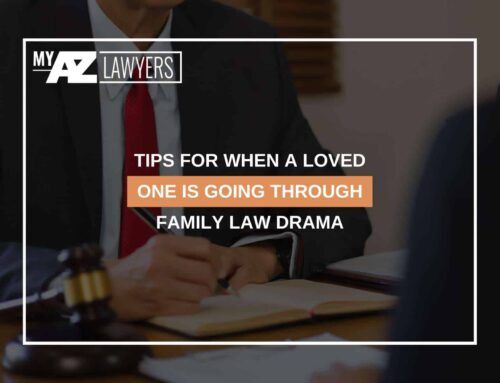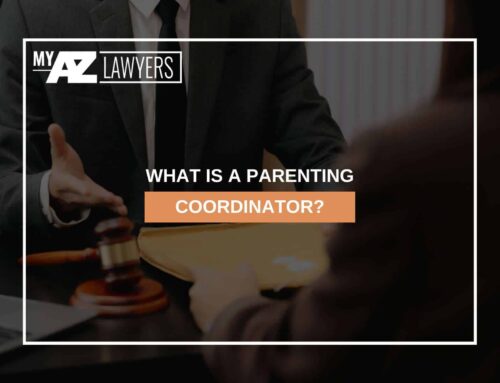Table Of Contents
Strategizing Your Child Custody Case as a Father
A few decades ago, if two parents ended their marriage through divorce and shared minor children, it was assumed that the mother would be awarded primary custody and the father would get to see his children every other weekend. This means more than just losing out on precious time with children that can’t given back- it also has serious implications for child support. Once custody orders are in place, they are difficult to overturn. It’s important to make sure that when your child custody is up in the air, it settles in a way that is favorable for your changing family structure. Our dedicated Arizona family law lawyers can assist you as a father in obtaining a custody arrangement that is fair so that you can have a meaningful relationship with your child. Start working on your child custody strategy with your 100% free and confidential consultation by phone. Call 480-470-1504 to speak to an experienced Arizona child custody attorney today.

The Different Types of Child Custody in Arizona
There are several different legal terms surrounding child custody in Arizona, with some of them being used interchangeably and some of them being used in combination with each other. Every custody order in Arizona will determine two main types of custody: physical custody and legal custody. The formal terms for these are parenting time and legal decision-making. A parent can maintain legal decision-making for a child while the child is in the other parent’s physical custody- for example, if the child is injured by one parent and needs medical treatment, the other parent should be informed so that they can provide their opinion on which medical treatments the child should receive. Arizona’s courts prefer for parents to share both of these types of custody whenever possible. When this occurs, it is known as joint custody. If one parent will be the child’s primary custodian, it is known as sole custody.
In Arizona, family law judges are instructed to split custody 50/50 (or close to it) whenever possible. Scheduling could make this difficult, but the courts can also deviate from this preference if it would not be in the child’s best interest for a parent to have custody. There is no statutory preference between mother and father in Arizona child custody cases. If you have more questions about how child custody and custody presumptions in Arizona, call 480-470-1504 to set up your free consultation with our firm.
Legal Custody Options for Busy Dads
Sometimes, it isn’t always possible for a father to maintain primary physical custody of his child or even any arrangement close to a 50/50 split. Many types of employment require significant travel that isn’t conducive to raising young children. If a father is in the military, deployment is another reason that it may not be feasible to maintain physical custody of a child. If a father’s field of work makes physical custody difficult, that doesn’t mean that the father should not have legal custody of his child. However, a joint legal decision-making agreement may need a caveat that the physical custodian has the final say if the other parent can’t be reached for input within a certain period. Another party, such as the child’s grandparent, can act as that parent’s proxy under such circumstances. For more information about your options as an international dad, call 480-470-1504 for your free consultation.
Arizona’s Factors Affecting Child Custody
Family law judges are provided with a list of factors they should examine while determining child custody by Arizona’s statutes. Every decision should be made with priority given to the child’s “best interest” as defined by A.R.S. § 25-403. The factors set forth by this statute include:
- Each parent’s past, present, and potential future relationship with the child
- The physical and mental health of all parties involved
- The child’s adjustment to home, school, and community
- The child’s relationship with other people who may significantly affect their best interest, such as siblings, grandparents, or the parents’ new romantic partners.
- Which parent is more likely to allow frequent, meaningful, and continuing contact with the other parent
- If either parent has committed domestic violence or interfered with custody in the past
- When a child reaches a certain age and maturity level, their wishes
Proving That You’re a Good Dad in Court
In high-conflict custody cases, there’s a good chance that your character and abilities as a parent will be questioned, possibly in front of a judge in a court of law. With the stress of a custody matter, the last thing you need is your entire life dragged out publicly. If you have hobbies or activities in which you engage while your child is in their other parent’s custody, you may need to show the court that they don’t impact your child’s best interest. Focusing on relevance to your child’s best interest can limit how much digging into your personal life is required for the custody process. This strategy will also apply if any of your romantic prospects are brought up during custody disputes.
Whenever you do have disputes with your child’s other parent, you should create documentation of your version of events in case it becomes relevant in court. For example, if timeliness at custody exchanges is an ongoing concern in your case, you should keep a record of each exchange, whether each parent showed up on time, if notice and reasoning were provided of why the parent would be late, etc. Do your best to not be the parent who shows up late, even if your ex makes it a habit. Custody exchanges can also be an opportunity for a dramatic parent to cause a stir. If fighting during custody exchanges becomes a consistent issue, consider supervised custody exchanges. Here, custody exchanges will occur on neutral territory with a third party observing so that the parents are encouraged to remain on their best behavior. If your ex tries to extend social media beyond custody exchanges and into social media, do your best to rise above. Save social media posts that you find damaging to show your attorney and avoid making them yourself. Remember that your child will someday be old enough to use the internet and possibly find this information. If you have more questions about evidence that can be used in an Arizona child custody case, call 480-470-1504 for your free consultation.
Are You a Father Fighting for Custody in Phoenix, Arizona? Contact Our Firm for Your Free Consultation
Even with increasing equity and inclusion in 2024, fighting for custody as a father can still feel like a losing battle. Placing a child primarily with their mother may seem like a natural inclination to some but it may be far from the best decision in your situation. Whether you believe your child would benefit most from an even custody split or you wish to be your child’s primary caregiver, My AZ Lawyers can help make your reasoning and arguments clear and persuasive. Save yourself stress and headaches in the future by getting your point across the first time around. You can get started on your plan of action with one of our experienced Phoenix family law attorneys with no risk or obligation. To schedule your free consultation, contact us through our online form or call us at 480-470-1504.

MY AZ LAWYERS
Email: [email protected]
Website: www.myazlawyers.com
Mesa Location
1731 West Baseline Rd., Suite #100
Mesa, AZ 85202
Office: 480-448-9800
Phoenix Location
343 West Roosevelt, Suite #100
Phoenix, AZ 85003
Office: 602-609-7000
Glendale Location
20325 N 51st Avenue Suite #134, Building 5
Glendale, AZ 85308
Office: 602-509-0955
Tucson Location
2 East Congress St., Suite #900-6A
Tucson, AZ 85701
Office: 520-441-1450
Avondale Location
12725 W. Indian School Rd., Ste E, #101
Avondale, AZ 85392
Office: 623-469-6603











